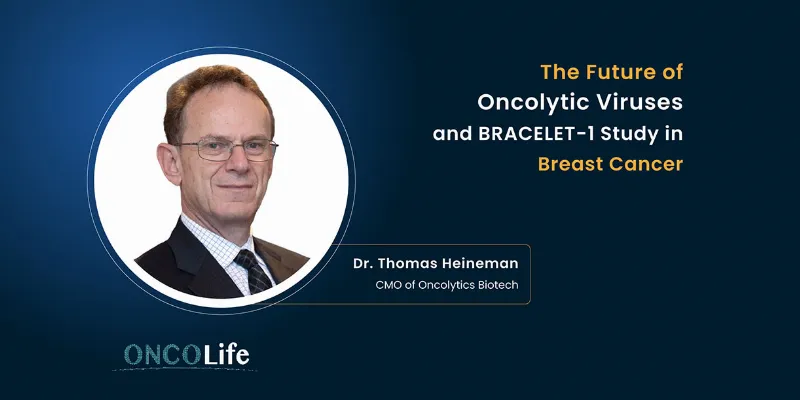The Future of Oncolytic Viruses and Their Role in Cancer Treatment

Oncolytic viruses are emerging as a promising development in cancer treatment, not only destroying cancer cells but also modulating the tumor microenvironment to enhance immune responses. We had an interview with Dr. Thomas C. Heineman, CMO at Oncolytics Biotech, where we discuss the groundbreaking potential of novel oncolytic virus therapy, pelareorep, in HR+/HER2- metastatic breast cancer, along with the latest data from the BRACELET-1 study.
We will also talk about Oncolytics Biotech’s vision for expanding pelareorep’s application to other cancers and its future role in the evolving oncology landscape.
Some of the main topics in this interview include:
- The future of oncolytic viruses and their role in cancer treatment
- What is the mechanism of action of pelareorep, and how does it stand out from other oncolytic viruses in terms of efficacy and safety, particularly in HR+/HER2- metastatic breast cancer?
- The BRACELET-1 study showed a median overall survival of at least 32 months in the Pelareorep + paclitaxel arm. What are the key factors contributing to this significant improvement?
- Beyond breast cancer, Pelareorep has shown promise in pancreatic cancer. What is your vision for expanding its application to other tumor types, and are there specific cancer indications that you are focusing on for future studies?
- What are the long-term safety and tolerability findings from your studies involving Pelareorep? Have there been any unexpected adverse events or unique safety signals that clinicians should be aware of?
- How do you envision pelareorep changing the standard of care for cancer patients?











Comments
No Comments Yet!